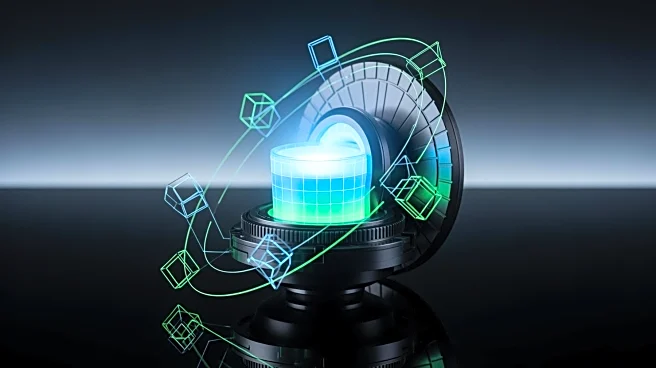What's Happening?
Nuclear startup X-energy has successfully raised $700 million in a Series D funding round, marking a significant milestone in its efforts to develop small modular reactors (SMRs). This latest round of funding follows an expansion of its Series C from $500 million to $700 million, bringing the total raised in the past year to $1.4 billion. X-energy has accumulated $1.8 billion in funding to date. The company plans to use the new capital to build the supply chain for its SMRs, which have already garnered orders for 144 units capable of generating 11 gigawatts of electricity. Notable customers include Amazon, Dow, and Centrica. The funding round was led by Jane Street, with participation from Ares Management funds, ARK Invest, and several other
investors.
Why It's Important?
The substantial investment in X-energy underscores the growing interest in nuclear energy as a viable solution for clean power generation. As the demand for sustainable energy sources increases, nuclear startups like X-energy are positioned to play a crucial role in meeting these needs. The development of SMRs offers a promising alternative to traditional nuclear power plants, with potential benefits including reduced construction costs and enhanced safety features. The involvement of major corporations such as Amazon highlights the strategic importance of nuclear energy in achieving corporate sustainability goals. This funding round could accelerate the deployment of SMRs, contributing to the diversification of the U.S. energy portfolio and supporting efforts to reduce carbon emissions.
What's Next?
X-energy is in a competitive race with other SMR startups to revitalize the nuclear industry in the United States. While several designs show promise, the construction of SMR power plants remains limited, with none currently operational in the U.S. The company aims to leverage its new funding to overcome these challenges and bring its reactors online by the early 2030s. As the industry progresses, stakeholders including tech companies, energy providers, and policymakers will likely continue to monitor developments closely. The successful deployment of SMRs could pave the way for broader acceptance and integration of nuclear energy into the national grid.















